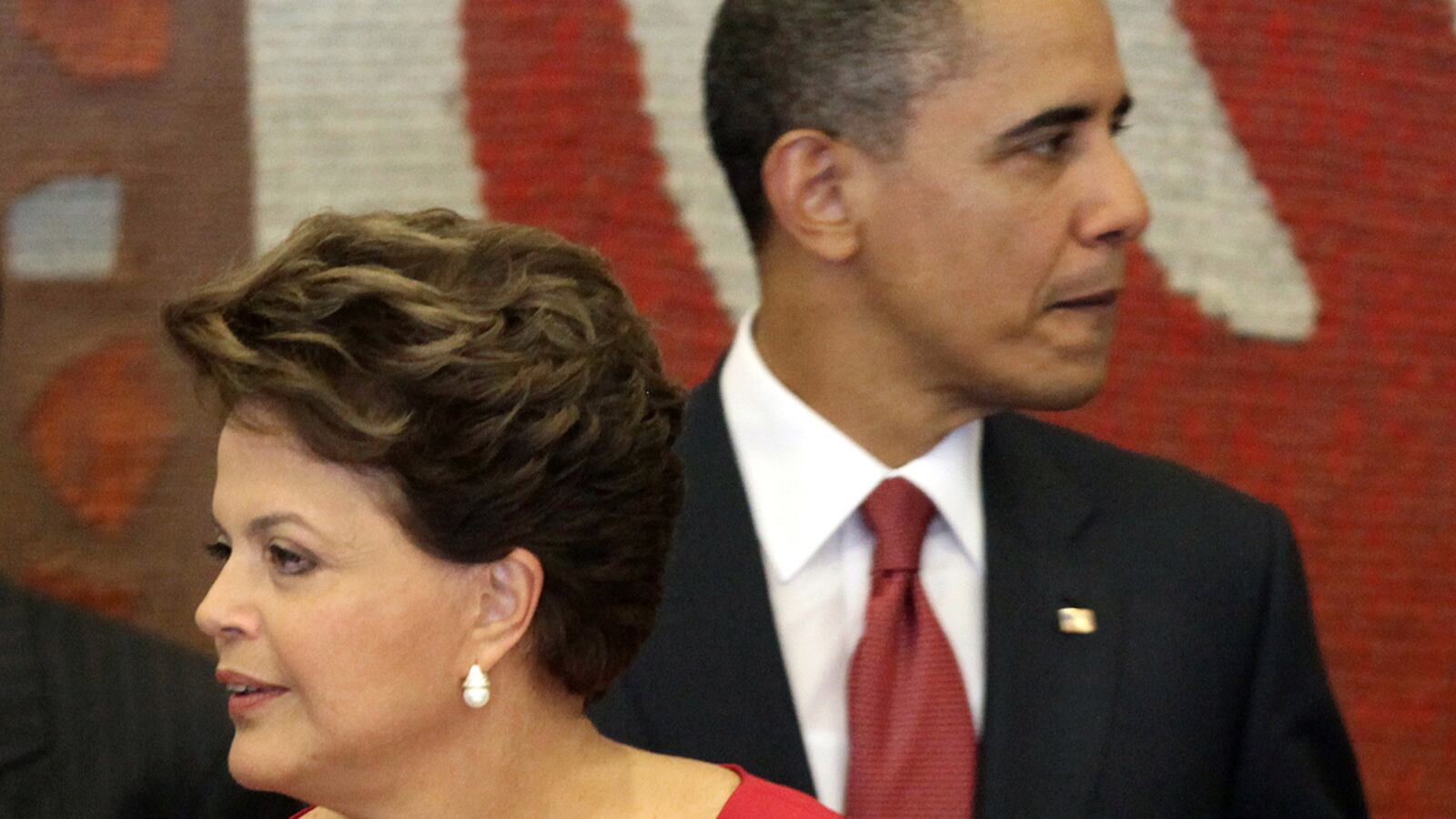When Dilma Rousseff took office in Brazil early this year, the diplomatic community held its breath. Rousseff had soared from a political nobody to the second most powerful job in the hemisphere, thanks to former President Luiz Inácio Lula da Silva, whose cordial relations with tyrants from Harare to Tehran had irritated world leaders, especially in Washington. Would she continue to dance with dictators or break with Lula’s third-world doctrine and bring this Latin American powerhouse back to the fold of Western constitutional democracy?
Nine months later, the verdict is in, and once again first world leaders are blue-faced over Brazil. In a year marked by explosive conflicts in North Africa and the Middle East, nation after nation has spoken up against the violent repression by dictators and in support of dissidents and citizens who have taken to the streets in record numbers. Even Russia and Turkey, which traditionally demur when rich nations browbeat third-world dictators, have taken a stand on the savagery in Libya and Syria. Not Brazil.
While blood has run in the Arab streets, the hemisphere’s emerging power of record has been circumspect when it isn’t silent. Brasília has declined to censure tyrants, criticized Western intervention in Middle East hotspots, and abstained on United Nations resolutions targeting human-rights abuses in North Africa. In a world of WikiLeaks, officials are all the more discreet, but it doesn’t take a mole to pick up the vibe in Washington over who lost Brazil.
The trouble started back in March, when Brazil’s diplomats voted against intervention in Libya to counter Muammar Gaddafi’s savage crackdown on rebels. Three months later, when Iranian dissident and Nobel Peace Prize laureate Shirin Ebadi visited Brazil on an international tour to muster support for human-rights efforts in Iran, Rousseff declined to see her. And in mid-August, as Syrian President Bashar al-Assad turned the tanks on demonstrators in Damascus, Brazil joined India and South Africa–the so-called IBSA bloc—in an anodyne declaration calling on “all sides to act with utmost restraint” and then echoed the Syrian dictator’s self-declared “commitment to the reform process, aimed at ushering in multi-party democracy." Brazilian foreign policy analyst Demétrio Magnoli called the IBSA declaration “one of the most abject documents Brazil has ever signed.”

And to think, it all began so well. Only last March, Barack Obama had taken an unprecedented weeklong tour of Latin America, raising static among the foreign-policy commentariat. After all, Tunisia’s dictatorship had just crumbled and now Egypt was roiled by protests. This was not empty diplomacy. With the U.S. economy stalled and the Arab world seesawing between tyranny and chaos, booming, democratic Latin America looked like an island of opportunity. After years of attention deficit in Washington, Obama’s nod to the south enchanted his hosts in Chile and El Salvador. But his real charm offensive was in Brazil.
“For so long, you were called a country of the future,” he told the country’s elite in a packed opera house in Rio de Janeiro, quoting the old saw that Brazil was the country of the future and always would be. “The people of Brazil should know that the future has arrived. It is here now. And it’s time to seize it.”
Better still, Rousseff already had given signs of wanting to meet Washington half way. Weeks before taking office on Jan. 1, 2011, she told The Washington Post that, as president, she would not condone torture or "medieval behavior," a pointed reference to Sakineh Ashtiani, the alleged Iranian adulteress who had been sentenced to death by stoning. Nor, as president, would she have abstained on U.N. human-rights resolutions as Brazil habitually did. "That's not my position," she claimed.
The wonks took note. After all, Lula was still in office at the time and Rousseff had been disparaged as his political creation and clueless on foreign policy. The smart money among Brazil watchers was on continuity with Lula’s see-no-evil foreign-policy doctrine, not rupture. "It's not up to Brazil to go around handing out certificates of good or bad behavior," was the mantra of Celso Amorim, Lula's foreign minister.
A watershed came in March, when the United Nations Human Rights Council passed an historic resolution naming an inspector to investigate conditions in Iran—with Brazil’s support. The decision sent hopes soaring among diplomats and civic groups of a sea change in policy in the Americas, even of a Latin spring, with Rousseff in the lead.
"Voting for the resolution, Brazil rendered months of lobbying on the part of the Iranian government ineffective," the International Campaign for Human Rights in Iran, an active non-governmental organization, reveled at the time. But that was then.






